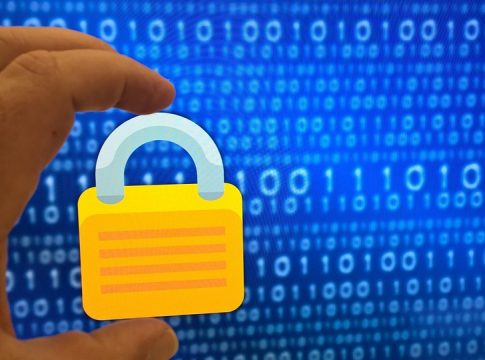In today’s digital age, the importance of digital privacy can’t be overstated. Every click, swipe, and like contributes to an intricate digital footprint that companies and governments can track. With data breaches and surveillance becoming a daily reality, understanding digital privacy is more crucial than ever. Let’s dive into 15 surprising facts about digital privacy that might just change the way you engage with technology.
1. Your Smart Devices Are Always Listening
Many people may not realize that devices like smart speakers, smartphones, and even smart TVs have the capability to listen to conversations. While they can be muted or switched off, many consumers are unaware of how often their devices are actively collecting data. Always check your device privacy settings and turn off voice assistants when not in use to maintain your digital privacy.
2. Social Media Isn’t as Private as You Think
Most social media platforms are free because they monetize your data. This means that what you share, even in private messages, could be seen by third-party advertisers. Always review your privacy settings on these platforms and opt for the most private settings available to keep your information secure.
3. Your Data Has a Worth
It’s estimated that individual data points can be worth up to $200. Businesses buy and sell this information, making you an asset without even knowing it. Consider limiting the amount of personal information you share online, especially on platforms that exploit it for profit.
4. Public Wi-Fi Poses Major Risks
Free public Wi-Fi may seem convenient, but it’s a hotspot for hackers. They can easily intercept data transmitted on these networks. To protect your digital privacy, always use a VPN when accessing public Wi-Fi and avoid sensitive transactions like banking.
5. Tracking Cookies Aren’t Just Annoying
Cookies help websites tailor content to your interests, but they also track your behavior. Third-party cookies can follow you across the web, building a profile of your habits. Regularly clearing your browser cookies can be an effective way to enhance your digital privacy.
6. Deleting Apps Doesn’t Erase Personal Data
Many users believe that uninstalling an app removes all related data, but that’s not the case. Data may still be stored on the server. If digital privacy is a concern, be sure to check each app’s privacy policy before downloading, and consider deactivating your account if you decide to delete the app.
7. Email Surveillance Is On the Rise
Emails are often less private than we think. Employers and service providers may monitor your emails without consent. Using encrypted email services can help preserve your digital privacy from prying eyes.
8. Biometrics Are Not Impervious
While biometric security features like fingerprints and facial recognition seem secure, they are not foolproof. Cybercriminals can replicate biometric data, leading to identity theft. Always have additional layers of security, such as passwords or two-factor authentication, to safeguard your accounts.
9. Online Tracking is Out of Control
A significant percentage of internet users are tracked on almost every website they visit. This barrage of tracking comes from multiple parties, making targeted advertising potentially overwhelming. Utilizing browser extensions that block tracking can significantly enhance your digital privacy.
10. Your Photos Can Reveal More Than You Think
Photos taken on smartphones often come with metadata, which can include your location at the time of taking the picture. If you share photos online, consider stripping the metadata to prevent unwanted tracking. Many apps and software allow you to do this easily.
11. Children’s Data is Especially Vulnerable
With the growth of online platforms targeting children, their data becomes particularly susceptible to exploitation. Always monitor and restrict what information your children share online to bolster their digital privacy.
12. Your ISP Knows Everything
Internet Service Providers (ISPs) can track your online activities and sell that data to advertisers. You might want to consider using a VPN or switching to a privacy-focused ISP to keep your online behavior under wraps.
13. Passwords Can Be Easily Hacked
The common belief that a simple password can safeguard your information is misleading. With hacking tools becoming advanced, many accounts can be compromised with just the click of a button. Use password managers and enable two-factor authentication to enhance security.
14. Data Breaches Are Commonplace
Over half of all internet users have fallen victim to some form of data breach or cyberattack. Keeping all your accounts secure and regularly updating passwords is essential for digital privacy. Awareness is the first step towards prevention.
15. Your Digital Footprint is Permanent
Once something is online, it’s nearly impossible to truly delete. Whether it’s a careless tweet or a forgotten image, the digital footprint can haunt you. Be mindful of what you post, as it can have long-lasting repercussions.
Understanding digital privacy is increasingly important in our interconnected world. Each of these facts illuminates elements that could drastically affect your online safety. Awareness is key—by taking practical steps based on these insights, you can safeguard your digital life.
Prioritizing Your Digital Privacy is a Must
Being informed about digital privacy facts can empower you to take control over your personal information. The simple acts of reviewing settings, being cautious about what you share, and regularly updating passwords can pave the way for robust online security.
What digital privacy measures have you taken in your life? Share your experiences in the comments!

Covers viral stories, pop culture, and breaking celebrity news.
Bio: Jamie has a sharp eye for what’s buzzing online, tracking social media trends and entertainment headlines around the clock.

